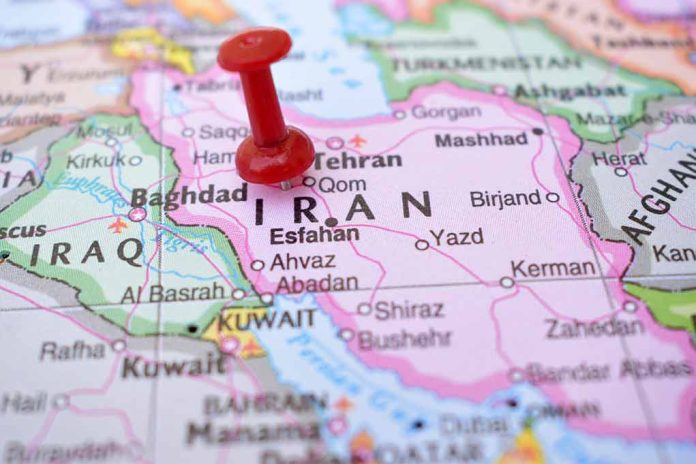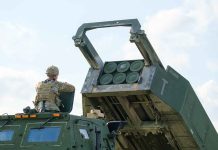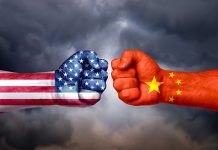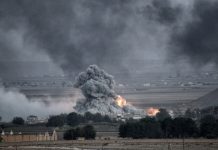
Iran’s failed assassination plots against President Trump lead to an unexpected diplomatic shift, as Tehran considers negotiating with the man they once sought to eliminate.
At a Glance
- U.S. DOJ charges Iranian national for plotting to assassinate President-elect Trump
- Iran denies involvement, calling for confidence-building measures with the U.S.
- Iranian officials consider diplomatic engagement with Trump amid economic struggles
- Trump’s stance on Iran includes preventing nuclear weapon development
- Iran’s ability to negotiate limited by Supreme Leader Ali Khamenei’s opposition to Trump
Iran’s Assassination Attempts Backfire
In a shocking turn of events, the U.S. Department of Justice has unveiled criminal charges against Farhad Shakeri, an Iranian national, for orchestrating a plot to assassinate President-elect Donald Trump. This brazen attempt, allegedly directed by Iran’s Islamic Revolutionary Guard Corps (IRGC), has not only failed but has also exposed the depths of Iran’s desperation and the effectiveness of U.S. intelligence and law enforcement.
The charges against Shakeri include murder-for-hire, conspiracy, and money laundering, highlighting the serious nature of Iran’s hostile actions against American citizens. This plot was reportedly part of a broader IRGC directive targeting U.S. and Israeli citizens, demonstrating Iran’s continued aggression towards Western interests.
Islamic Republic’s Regime’s Assassination Plot Against Trump; Time for International Accountability!
Recent revelations by US authorities uncovered a disturbing plot by the Islamic Republic of Iran to assassinate President Trump, highlighting the ongoing threat posed by the…
— Masih Alinejad 🏳️ (@AlinejadMasih) July 16, 2024
Iran’s Diplomatic Dilemma
Facing the consequences of their failed assassination attempts and crippling economic sanctions, Iran now finds itself at a crossroads. The regime’s hardline stance against the U.S., particularly President Trump, has yielded no positive results. Instead, it has further isolated Iran on the global stage and exacerbated its economic woes.
In a surprising shift, some Iranian officials are now considering the unthinkable: engaging in diplomacy with President Trump. This potential overture comes as Iran grapples with the harsh reality that its current approach has failed to alleviate sanctions or improve its international standing. The regime’s newfound pragmatism, however reluctant, may be its only path forward in the face of mounting economic pressures.
Trump’s Tough Stance and Iran’s Economic Woes
President Trump’s unwavering stance on Iran, including his commitment to preventing nuclear weapon development and his suggestion of potential military action, has clearly rattled the Iranian regime. The assassination of General Qassem Soleimani in January 2020 demonstrated Trump’s willingness to take decisive action against perceived threats, leaving Iran scrambling for a response.
“Hit the nuclear first and worry about the rest later” – Donald Trump
The impact of U.S. sanctions on Iran’s economy cannot be overstated. With its financial resources dwindling and its people suffering, the regime is under immense pressure to find a solution. This economic strain has forced even hardliners within the Iranian government to reconsider their approach, recognizing that continued hostility towards the U.S. may lead to further isolation and economic ruin.
The Path Forward: Diplomacy or Continued Conflict?
As Iran contemplates its next move, the world watches with bated breath. The possibility of diplomatic engagement between Iran and the Trump administration presents both opportunities and challenges. For Iran, any deal must allow the regime to maintain domestic credibility while alleviating the crushing economic sanctions. For the U.S., ensuring Iran’s compliance with nuclear non-proliferation and addressing its support for terrorism remain top priorities.
“Actors directed by the Government of Iran continue to target our citizens, including President-elect Trump, on U.S. soil and abroad. This has to stop.” – Manhattan U.S. Attorney Damian Williams
The road ahead is fraught with obstacles, not least of which is the opposition from Iran’s Supreme Leader Ali Khamenei to any engagement with Trump. However, the dire economic situation and the failure of aggressive tactics may force even the most hardline elements of the regime to reconsider their position. As President Trump prepares to return to the White House, the ball is in Iran’s court to decide whether it will choose the path of diplomacy or continue down the road of conflict and isolation.






















